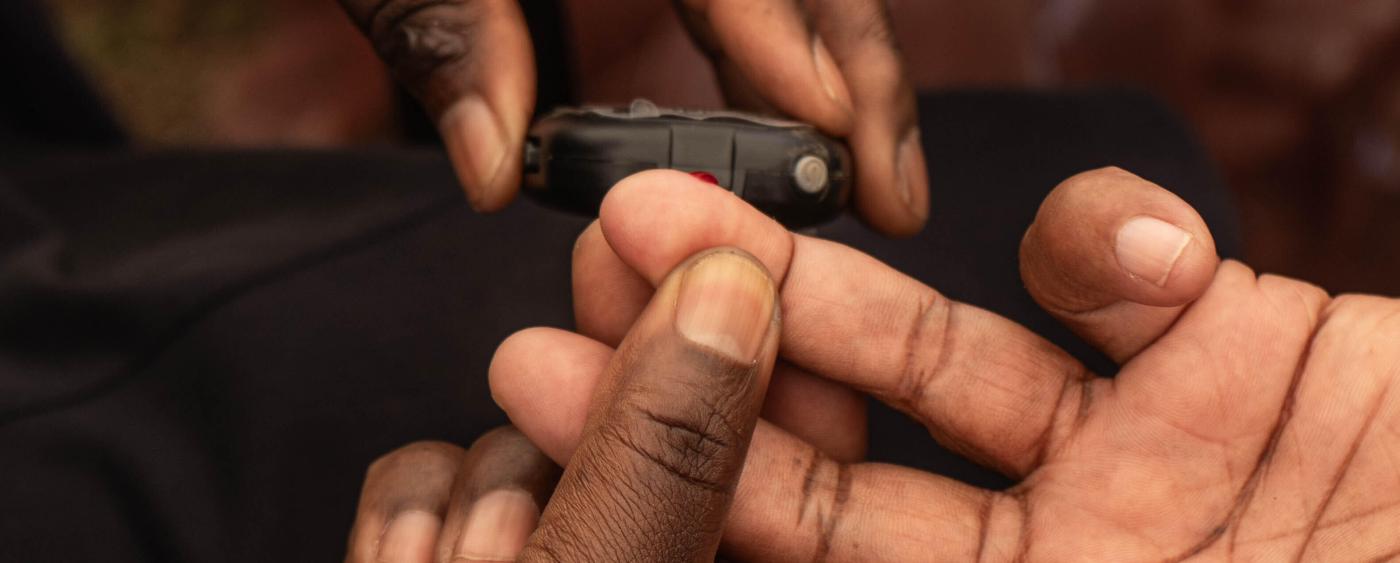
Tadeu Andre
Diabetes: A life-saving calculation tool
- Share on Facebook
- Share on Telegram
- Share on LinkedIn
- Share on Twitter
- Copy link
Page url is copied
In many low-resource countries, insulin-dependent diabetes remains a daily challenge for healthcare providers and a life-threatening condition for patients. One of its most serious complications, diabetic ketoacidosis, occurs when the body lacks insulin and uses fat for energy, leading to a dangerous blood pH imbalance. This complication requires rapid and precise management. However, the shortage of qualified endocrinology professionals and the limited availability of laboratory tests make treatment particularly difficult.
In areas where Médecins Sans Frontières operates, the situation is striking: in Aweil, South Sudan, around thirty children with type 1 diabetes are hospitalized in intensive care each month due to episodes of ketoacidosis. Some even return multiple times per month. This situation results from particularly complex care challenges in the region, linked to the lack of access to essential treatments such as insulin and devices for monitoring blood sugar at home.
An Existing Tool
At the beginning of 2025, the MSF Foundation launched an exploratory project to identify solutions that could facilitate the management of diabetic ketoacidosis in the field. This led to the discovery of the work of Dr. Dan Leach, a British pediatrician who developed an online calculation tool that allows precise determination of fluid and insulin doses to guide clinical decisions in the treatment of diabetic ketoacidosis.
This tool, recognized by the British Society for Paediatric Endocrinology and Diabetes, is already in use in the United Kingdom. Its main advantage is simplicity: the healthcare worker enters the patient’s clinical and biological parameters, and the algorithm calculates the appropriate doses of the main components of the treatment.
Adapting Innovation to Field Realities
However, in MSF’s intervention contexts, many of the biological data required by the calculation tool are not available: limited blood tests, small staff numbers, etc. As a result, the tool cannot be used as-is.
The next steps will involve working with Dr. Dan Leach to adapt it. Some of the options under consideration include:
- Simplifying the required parameters to make the tool usable even with minimal data.
- Selecting and facilitating access to portable measurement devices in the field to collect essential data, such as ketone levels responsible for blood acidification.
An Approach of Agility and Collaboration
This project reflects the DNA of the MSF Foundation: exploring, collaborating, and innovating. In just a few months, it identified a promising tool, established a partnership with its creator, and opened the way for a concrete adaptation for low-resource countries.
In addition to the actions already implemented by MSF, initiatives like this offer tangible opportunities to improve the quality of care in fragile contexts. The ultimate goal is clear: to support medical teams and improve patient survival.
